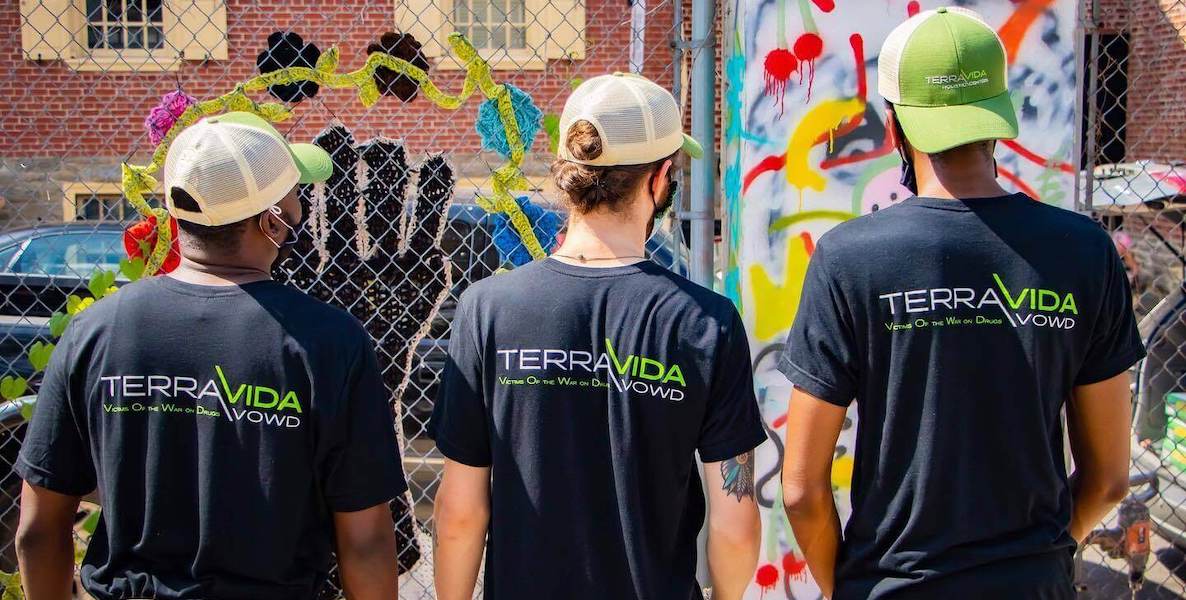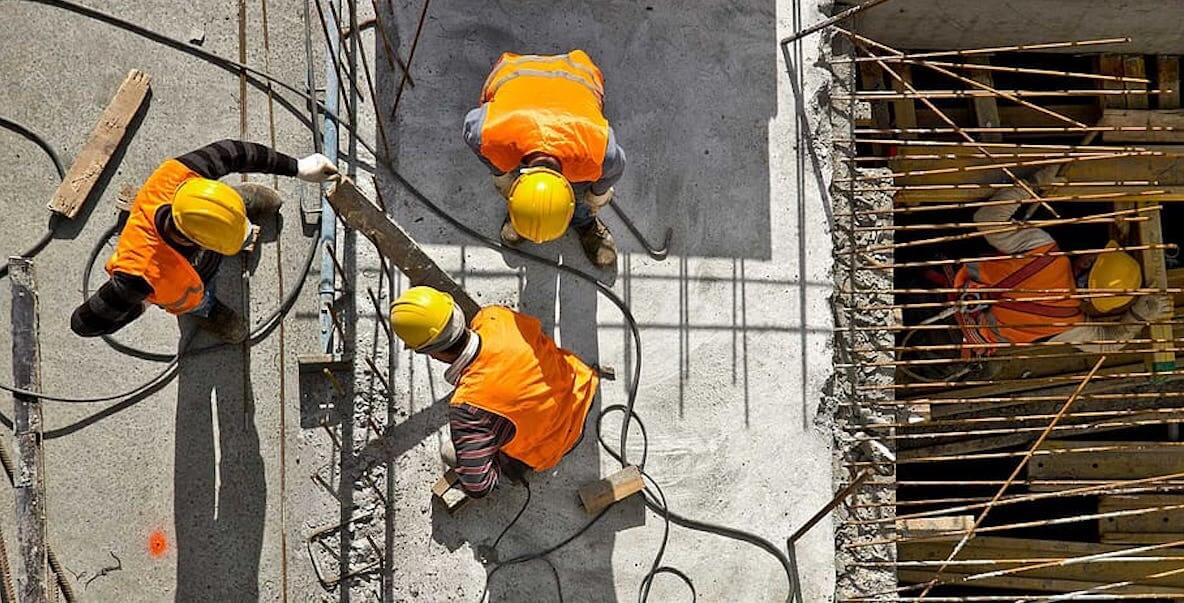![]() Chris Visco holds a unique, albeit unofficial, badge of honor in our Commonwealth: In 2017, she was the first woman in Pennsylvania to get her medical marijuana license.
Chris Visco holds a unique, albeit unofficial, badge of honor in our Commonwealth: In 2017, she was the first woman in Pennsylvania to get her medical marijuana license.
After securing that distinction, the retailer-turned-entrepreneur launched a series of dispensaries called TerraVida Holistic Centers. But even though the businesses’ three outposts in Abington, Sellersville and Malvern were immediately successful, Visco had a hard time finding employees to staff them.
Older people wouldn’t apply because of the stigma surrounding the cannabis industry. Younger people who were passionate about cannabis applied to work for her, but Visco couldn’t hire many of them because they often had small possession charges from when they were teenagers.
“We weren’t getting middle-aged men in suits coming. We were getting younger people who were interested in cannabis,” she says.
In Pennsylvania, state law prohibits people from working in the medical marijuana industry if they have been convicted of a criminal offense related to the sale or possession of illegal drugs, including prior cannabis-related convictions.
These issues aren’t unique to Pennsylvania. Nearly every state where marijuana is legalized has laws that prevent people with prior drug-related convictions from working in the legal marijuana industry, though some state restrictions are less severe than others.
For Visco, these issues came to a head when a man she wanted to hire as a manager couldn’t be employed by the holistic centers because of a prior drug-related conviction from 10 years prior.
“I thought enough is enough,” Visco says. “This has to stop.”
An unlikely—but perfect—pairing
Visco jumped into action and founded the nonprofit TerraVida Victims of the War on Drugs (VOWD) in April of 2019. The organization advocates for the legalization of marijuana and seeks to help people with marijuana-related charges on their records find employment and get their records expunged.
And this year, VOWD partnered with the Urban League of Philadelphia’s Out4Good program, which helps reentering citizens find and retain employment after they leave the prison system.
 The Out4Good program, which the Urban League started earlier this year, is a four-week program that offers skills training, workforce development and job training and placement services to people with criminal records. It also provides emotional and financial support services to cohorts of 10 people per session. Since its launch in January, it has graduated 30 participants, all of whom have remained out of prison and 28 of whom have started careers or longer-term job training programs, like those in welding or those required to get a commercial driver’s license.
The Out4Good program, which the Urban League started earlier this year, is a four-week program that offers skills training, workforce development and job training and placement services to people with criminal records. It also provides emotional and financial support services to cohorts of 10 people per session. Since its launch in January, it has graduated 30 participants, all of whom have remained out of prison and 28 of whom have started careers or longer-term job training programs, like those in welding or those required to get a commercial driver’s license.
“It is a wonderful and good thing to watch individuals who want to learn, who want to move ahead in life, who have paid their debt to society, and know that they get a second chance,” says Andrea Custis, president and CEO of the Urban League of Philadelphia, who’d longed to create Out4Good since she took the reins at the Urban League in 2017. She was able to do so with the support of Aramark, who committed to three years of funding support.
![]() The program’s small cohorts are intentional, Custis says. Working with groups of 10 at a time allows the program to provide a full range of professional development and emotional support services to the participants. It also allows them to focus on the individual needs of each attendee and allows participants to form bonds with each other so that they become a support system for one another after the program continues. They plan to have a minimum of 40 participants each year. This year, the program is on track to work with a total of 60 participants.
The program’s small cohorts are intentional, Custis says. Working with groups of 10 at a time allows the program to provide a full range of professional development and emotional support services to the participants. It also allows them to focus on the individual needs of each attendee and allows participants to form bonds with each other so that they become a support system for one another after the program continues. They plan to have a minimum of 40 participants each year. This year, the program is on track to work with a total of 60 participants.
Through their collaboration, TerraVida VOWD is sponsoring an emergency fund which will allow the Out4Good program to provide monetary assistance to reentering citizens who need help with cell phone bills, travel expenses accrued as a result of commuting to and from a job, child support, court costs, fines and other expenses.
“My philosophy is, if you’ve done the crime and done your time, that’s what society asks of you,” says Visco. “And now it’s time for you to be re-entered into society.”
“We’re providing money for an emergency fund because the people in the program cannot work, and they may run into situations where they have to pay for a cell phone bill, they may want or need a suit jacket,” Visco says, noting that re-entry programs often leave out the financial assistance needed to pay bills while enrolled.
Financial security plays a major role in whether or not people who were formerly incarcerated will be able to successfully reintegrate into society. Studies have found that the unemployment rate among formerly incarcerated people is 27.3 percent and that 31 percent face housing insecurity. Without secure income, housing and robust re-integration services, people are more likely to reoffend and end up back in prison.
Advocating for criminal justice, too
So far, the efforts of TerraVida VOWD have been funded almost entirely using money from TerraVida Holistic Centers. While the company won’t release exact sales figures, the centers have been wildly successful: In 2018, TerraVida Holistic Centers was the largest medical marijuana distributor in the state. That year, they sold between 30 and 40 pounds of marijuana flowers a week, according to the Philadelphia Inquirer.
Since then, they’ve grown from just three employees to 168 and they’ve expanded their business to include emergency caregiver drop-off during the pandemic, with staffers who can legally pick up and deliver medical marijuana to patients who might not be able to get it themselves because of physical pain, illness or pandemic concerns.
Visco estimates that they’ve spent several hundred thousand dollars on the nonprofit arm. This spring, they plan to launch a fundraising initiative as well.
In addition to their efforts with the Out4Good Program, both TerraVida VOWD and the Urban League of Philadelphia have been working with legislators and local governments to advocate for criminal justice reform. Custis has been meeting with state senators and Visco has been working to gain the support of chiefs of police around Southeastern Pennsylvania so that they can better advocate for reform with district attorneys.
Pennsylvania has a particularly high rate of marijuana arrests. During the period between 2010 and 2016, the ACLU found that marijuana arrests in Pennsylvania rose by 33 percent, excluding statistics from Philadelphia where cannabis-related arrests declined as a result of decriminalization in 2015.
NORML reported that data from the Pennsylvania State Police Uniform Crime Reporting System showed that arrests for marijuana decreased in 2019 when compared to 2018, though the state remains in the top five for arrests and prosecutions related to the drug.
Black people are 3.64 times more likely than white people to be arrested for marijuana possession, despite similar use rates, according to a 2020 analysis from the ACLU. And Black people and others affected by the war on drugs have been historically shut out of the legal marijuana industry.
Ideally, they’d both like to see full legalization of marijuana, including for home grow, as well as expungements of cannabis-related indictments for possession of 60 grams or less and the release of all prisoners with misdemeanor possession charges of all narcotics.
“There is a judicial system for white folks and there’s a judicial system for Black folks,” says Custis. “We need one judicial system in this state.”
Intersecting paths
Before founding TerraVida Holistic Centers, Visco spent nearly 30 years working in retail and marketing. She did stints as a buyer for Boscov’s and David’s Bridal and started her own social media marketing firm called PJs & Coffee in 2011, which worked with restaurants and other small businesses. She also consulted for political candidates and was hired to train many of them in her role as a digital media expert for the Montgomery County Democratic Party.
Her career in politics intersected with the beginnings of Act 1, Pennsylvania’s State Medical Marijuana Act; so, just as she had throughout her whole career, Visco decided to follow the market trends and apply for a license to sell medical cannabis in 2016.
Her belief that marijuana should be used as a tool to help improve the quality of life for people who are sick drives her work both at the holistic centers and, now, TerraVida VOWD.
“There is a judicial system for white folks and there’s a judicial system for Black folks,” says Andrea Custis, president and CEO of the Urban League of Philadelphia. “We need one judicial system in this state.”
As Visco sees it, the criminalization of marijuana has created a stigma that makes it more difficult for people with prior drug convictions to reenter society. And to make headway on marijuana legalization, expungements of criminal records related to cannabis, and other related issues, Visco says you have to win over the older generation.
“We’ve gone out into the community and tried to go after Grandma,” Visco says.
![]() TerraVida VOWD holds educational seminars in nursing homes, senior centers and religious organizations like churches and synagogues. To connect with older voters about ending the stigma around marijuana, they also participate in events like voter registration and census counting drives. That way, they worked both to end the stigma around the drug, and to encourage people to take political action and voice their opinions on marijuana legalization.
TerraVida VOWD holds educational seminars in nursing homes, senior centers and religious organizations like churches and synagogues. To connect with older voters about ending the stigma around marijuana, they also participate in events like voter registration and census counting drives. That way, they worked both to end the stigma around the drug, and to encourage people to take political action and voice their opinions on marijuana legalization.
The group also advocates for marijuana legalization both within the state and nationally, and helps people who are seeking employment within the cannabis industry expunge marijuana-related records. And they’ve partnered with Montgomery County’s chapter of NORML, a marijuana advocacy group, to be able to place “pardon bins” in Philadelphia’s suburbs, which contain the paperwork and instructions needed to help people get expungements for nonviolent drug convictions. The bins will be set up this winter and will be promoted with digital ads and on social media.
“My philosophy is, if you’ve done the crime and done your time, that’s what society asks of you,” says Visco. “And now it’s time for you to be re-entered into society.”
The Philadelphia Citizen is one of 20 news organizations producing Broke in Philly, a collaborative reporting project on solutions to poverty and the city’s push towards economic justice. Follow the project on Twitter @BrokeInPhilly.




